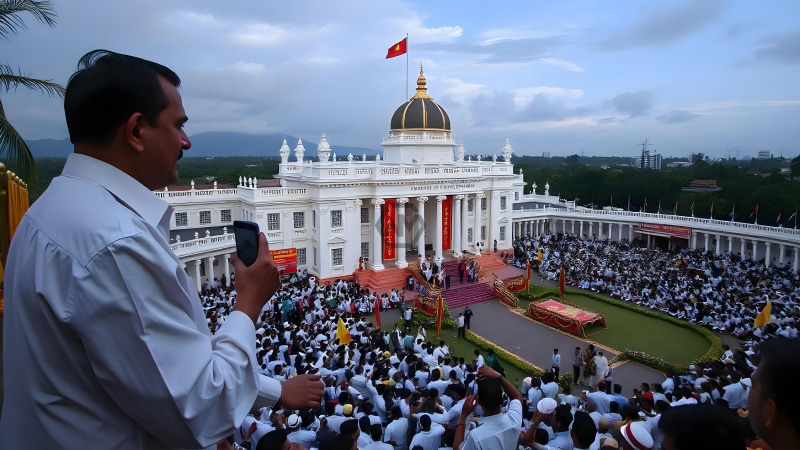- Women make up over half of Sri Lanka’s voters but lack representation in presidential elections.
- Sri Lanka has a history of female leaders, but political structures remain male-dominated.
- Activists push for quotas to increase female representation in national politics.
Despite women accounting for a significant majority of Sri Lankan voters, no female candidates are running in the upcoming presidential election.
Activists and organizations are working to change this dynamic by advocating for gender quotas in parliament, similar to the 25% mandate that has successfully increased women’s representation in local councils.
Sri Lanka’s Female Voters: Absent from the Ballot but Not from the Debate
In a country where women constitute a majority of the electorate, the absence of female presidential candidates in Sri Lanka’s 2024 election has sparked discussion about gender representation in politics. With more than 17 million eligible voters, nearly 9 million are women, yet the political stage remains dominated by male candidates. This reflects a global trend, as seen in a 2023 Pew Research study that revealed only 13 out of 193 UN member states have female heads of government.
Sri Lanka has a notable history of female political leadership, including the world’s first woman prime minister, Sirimavo Bandaranaike, and the country’s only female president, Chandrika Kumaratunga. However, these women rose to power largely due to family legacies, and other female politicians often enter politics following the deaths of their male relatives. This suggests that while women can reach leadership positions, their paths are often paved by male-dominated political systems.
Efforts to promote gender equality have gained traction, particularly after the 2016 mandate requiring local councils to be at least 25% female. While this quota has improved female representation at the local level, national representation remains low, with only 5.3% of parliamentarians being women. Advocacy groups like the Women and Media Collective continue to push for similar quotas in national elections to ensure more equitable representation.
The lack of female presidential candidates is seen by many as a missed opportunity to address the specific challenges faced by women voters. First-time voters like Sandami Nimesha have voiced disappointment, believing that a woman president would prioritize women’s issues. The hope remains that future elections will feature stronger female contenders who can influence the political landscape and bring a more balanced approach to governance.
The absence of female candidates in Sri Lanka’s 2024 presidential election underscores the ongoing struggle for gender parity in national politics. Though progress has been made at the local level, advocates continue to push for systemic changes that will allow more women to rise to leadership positions and represent the issues that matter most to female voters.
“The main political parties are so male-oriented, and so many men on the top hold power, that they don’t find it convenient to step aside and allow women party members to come up and contest.” — Sepali Kottegoda



